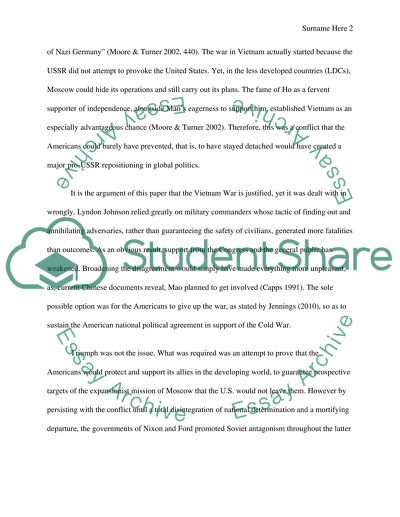Cite this document
(“The Truth about the U.S. Involvement in the Vietnam War Research Paper”, n.d.)
Retrieved de https://studentshare.org/english/1390647-the-truth-about-the-us-involvement-in-the-vietnam-war
Retrieved de https://studentshare.org/english/1390647-the-truth-about-the-us-involvement-in-the-vietnam-war
(The Truth about the U.S. Involvement in the Vietnam War Research Paper)
https://studentshare.org/english/1390647-the-truth-about-the-us-involvement-in-the-vietnam-war.
https://studentshare.org/english/1390647-the-truth-about-the-us-involvement-in-the-vietnam-war.
“The Truth about the U.S. Involvement in the Vietnam War Research Paper”, n.d. https://studentshare.org/english/1390647-the-truth-about-the-us-involvement-in-the-vietnam-war.


